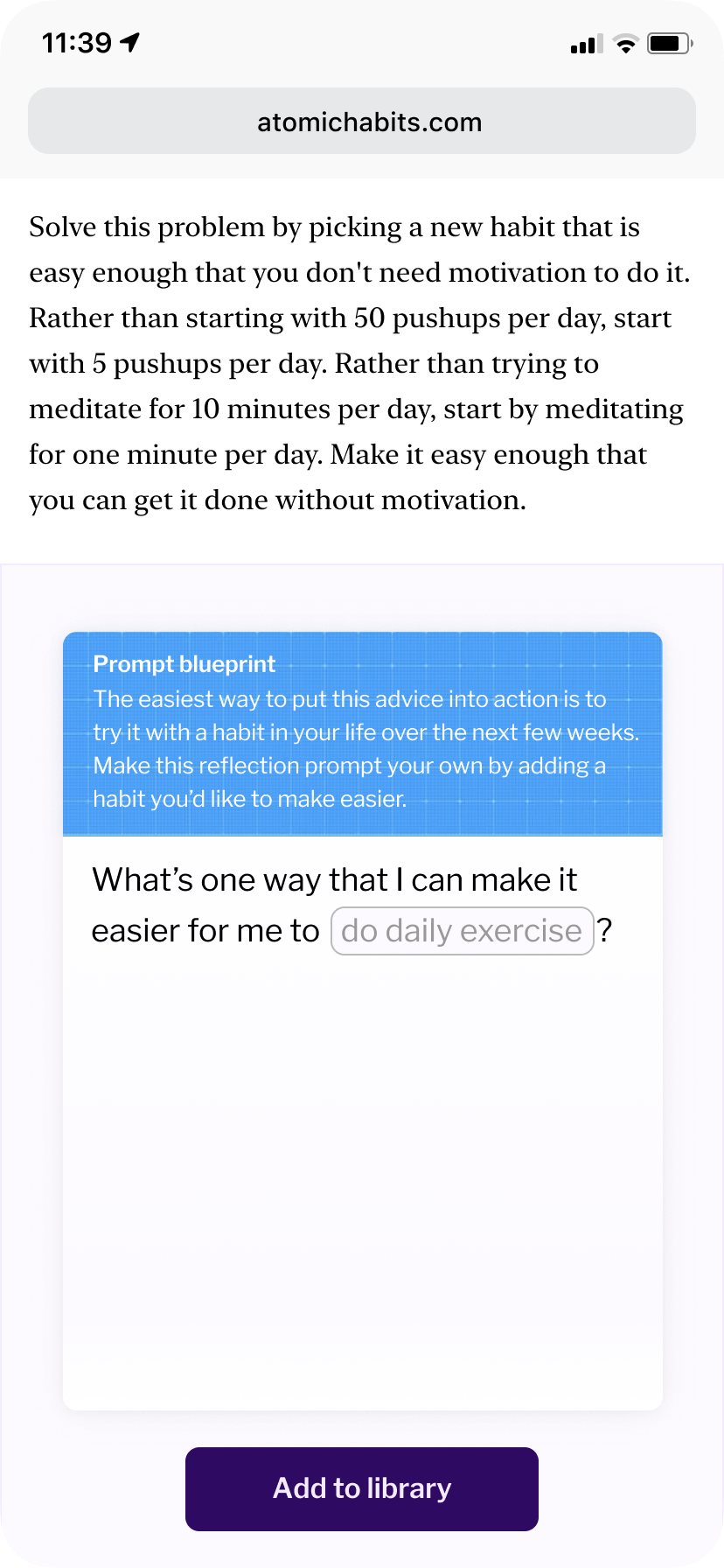Andyʼs working notes
About these notesEmbedded prompt templates may actively scaffold prompt-writing for mnemonic medium readers
The mnemonic medium may help scaffold prompt-writing through author-provided prompts, but sometimes it’s particularly important that the reader write their own prompts—e.g. particularly when the impact is personal rather than intellectual, as in Spaced repetition may be a helpful tool to develop or change habits. In these situations, what if the author could help the reader write their own prompts? Perhaps they could provide a set of prompt templates to remix, interleaved directly into the reading experience as in this sketch:

This mechanism will depend heavily on good answers to How might the mnemonic medium adapt to readers’ differing backgrounds and goals?. This is the kind of thing which could readily feel quite irritating.
Perhaps the typing interaction should be pulled out “above” the prompt itself, so that several prompts can be generated from a single response; e.g. “What frictions do I feel when trying to do daily exercise?” and “What’s one (new) thing I might try to make it easier to do daily exercise?”, with both templates’ blanks filled in with the chosen habit.
A variant of this mechanism could be framed as a multi-part prompt (the card unfolding like origami?): “At this moment, what habit do you instinctively feel you want to make more reliable?” / “What frictions do you feel when trying to do that habit?” / “How might you ease those frictions or make it easier to do that habit?” With this type of multi-part prompt, a typing interaction may not be necessary: the later prompts can simply speak to the earlier ones.
A related possibility: Reflection prompts can record and accumulate responses over time
References
Conversation with Taylor Rogalski, 2020-05-10